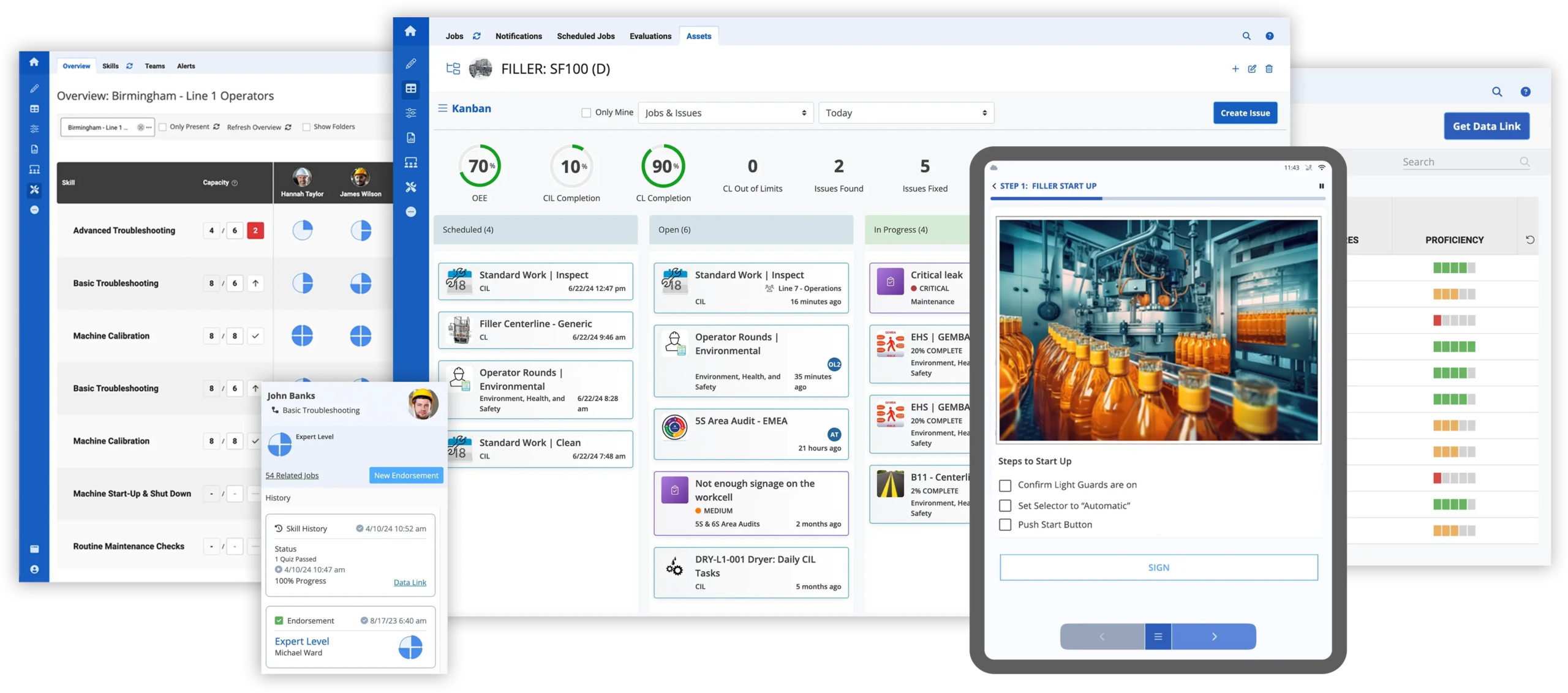Modern technology plays a pivotal role in driving operational efficiency. By digitizing workflows, automating tasks, and delivering real-time data insights, businesses can optimize operations, reduce waste, and improve performance across the board.
Key technologies that impact operational efficiency include:
Connected Worker Technology
Connected worker platforms digitize frontline operations by equipping workers with mobile devices, smart wearables, and real-time communication tools. These platforms provide digital work instructions, remote expert guidance, safety alerts, and performance tracking — empowering workers to operate more safely, efficiently, and accurately. They also enable organizations to collect valuable data from the field for continuous improvement.
Generative AI Assistants
GenAI assistants support frontline workers by providing real-time, context-aware guidance, answering questions, flagging potential issues, and simplifying task execution. These intelligent assistants reduce cognitive load, help workers follow complex procedures correctly, and improve productivity and quality — especially for new or less experienced employees.
Artificial Intelligence (AI) & Machine Learning (ML)
These technologies automate decision-making and optimize operations by identifying patterns, predicting maintenance needs, and recommending process improvements based on historical and real-time data.
Industrial Internet of Things (IIoT)
Sensors and connected devices monitor equipment health, track inventory, and collect operational data to reduce downtime, improve quality, and drive predictive maintenance strategies.
Workflow Automation
Automates manual, repetitive tasks such as scheduling, approvals, and reporting. This reduces human error and increases speed and consistency.
Enterprise Resource Planning (ERP) Systems
ERP systems integrate core business processes — including finance, supply chain, and HR — into a unified platform, increasing visibility and improving data-driven decisions.
Cloud Computing
Facilitates collaboration, scalability, and data access across multiple locations and departments, enabling more agile operations.
By strategically implementing these technologies — especially connected worker solutions and AI digital assistants that bring digital transformation to the front lines — organizations can significantly boost operational efficiency while also improving safety, quality, and workforce engagement.


